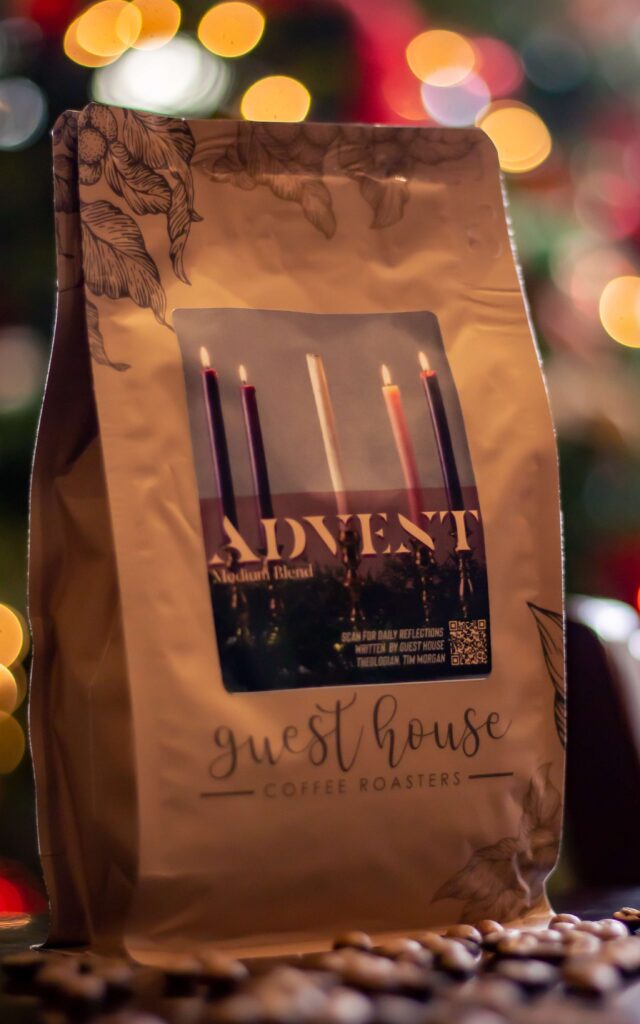“It is good for me that I was afflicted, that I might learn your statutes” (Psalm 119:71).
The Gospel of Mark opens with John the Baptist’s forerunning ministry described in a hodge-podge of prophetic words: “Behold, I send my messenger before your face, who will prepare your way, the voice of one crying in the wilderness: ‘Prepare the way of the Lord, make his paths straight’” (Mark 1:2-3). Part of this thematic epitome comes from Isaiah 40, where a little context brings the ominous significance of this description into relief. Isaiah (and by inference John the Baptist) prophesies that every mound, hill, and mountain, every hole, pit, and valley will be leveled out, so that everything stands the same, everything bears the same status before the revelation of the Lord’s glory (Isaiah 40:3-5). Everything, absolutely everything is but a moment in time, “all flesh is grass” (Isaiah 40:6), “but the word of our God will stand forever” (Isaiah 40:8). This is the message which interprets John the Baptist’s ministry to us. His ministry is one of upheaval, of undoing, flattening, and tearing away every alleged companion or competitor to the Lord’s word. Nothing is like it. And, John says, “after me comes he who is mightier than I” (Mark 1:7). Even John’s destructive power is nothing compared to the Lord’s word whose way he prepares.
The coming of the Lord’s word is affliction. The psalmist writes, “I know, O Lord, that your rules are righteous, and that in faithfulness you have afflicted me” (Psalm 119:75). The Lord’s “word,” “promise,” “law,” “rules from of old,” “statutes,” “name,” “commandments,” and “precepts” (Psalm 119:49-56) are prayer’s center of gravity. They bring into orbit our “hope,” “comfort,” “songs,” and obedience. However, it also brings into our orbit “the cords of the wicked” which ensnare us (Psalm 119:61) and the lies with which “the insolent” smear us (Psalm 119:69). We are afflicted from within and without. The counter-intuitive effect of this is that, while “before I was afflicted I went astray,” now “I keep your word” (Psalm 119:67). Or again and more pointedly, “It is good for me that I was afflicted, that I might learn your statutes” (Psalm 119:71). The Lord’s word against the world and against his people is unfaltering (Isaiah 9:8). It demands repentance and completely shuts out duplicity (Isaiah 9:13-16; Mark 1:4). As Isaiah puts it, before the afflicting Jesus, “The grass withers, the flower fades when the breath of the Lord blows on it; surely the people are grass” (Isaiah 40:7).
However, the coming of the Lord’s word is also preservation. The psalmist writes, “I entreat your favor with all my heart; be gracious to me according to your promise” (Psalm 119:58). In the situation we’re in before the Lord’s coming word, where we find ourselves afflicted from every side, the assurance of Noah and Lot can embolden our hope, enliven our prayer, and strengthen our resolve: “the Lord knows how to rescue the godly from trials” (2 Peter 2:8). The affliction amidst which the righteous are preserved (2 Peter 2:5-9) is caused by “the word of God” which formed the earth, brought the great flood upon it, and now stores “the heavens and earth that now exist” up for “judgment and destruction” (2 Peter 3:7; Isaiah 9:8). The word which God speaks claims the world. It doesn’t bargain. It doesn’t compromise. It doesn’t blush. The word which God speaks is the coming Jesus. He is the resounding pronouncement which melts the heavens and floods the earth. The certainty and resolve of that pronouncement protects God’s people, rescues his remnant (2 Peter 2:5, 7), those who “confirm” their “calling and election” by practicing the shape of Christ’s life (2 Peter 1:5-7, 10), from the affliction which his claim causes. As Isaiah writes, “The grass withers, the flower fades, but the word of our God will stand forever” (Isaiah 40:8). Those who speak “false words” (2 Peter 2:3) will dissipate before God’s word, but those who “have the prophetic word more fully confirmed” (2 Peter 1:19) will stand with it.
Today, I’d encourage you to dwell on this question: Does God know do what he’s doing? Does he know how to do it? The power of God’s word isn’t that it’s “a good strategy” or that it “makes sense,” but that it is goodness and sense-making as such. It is creation and judgment, preservation and destruction, promise and dissolution. If God knows what he’s doing, and if he knows how to do it, then “what sort of people ought you to be in lives of holiness and godliness” (2 Peter 3:11)?
Further Reading: Psalm 119:49-72; Isaiah 9:8-17; 2 Peter 2:1-10a; Mark 1:1-8
Written by Guest House Theologian, Tim Morgan. These reflections are a complimentary addition to our Advent Blend Coffee Bags. Scan the QR code each day to read the most recent reflection.

More Advent reflections can be found here.